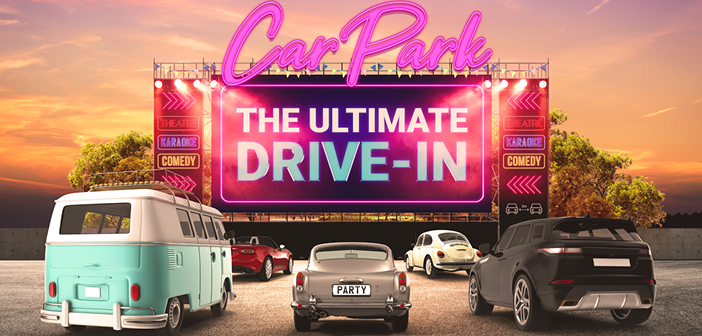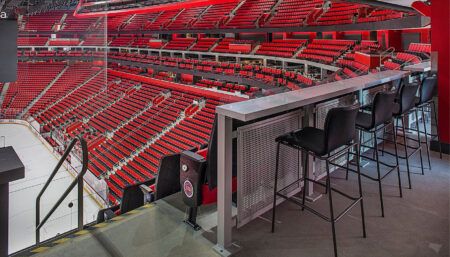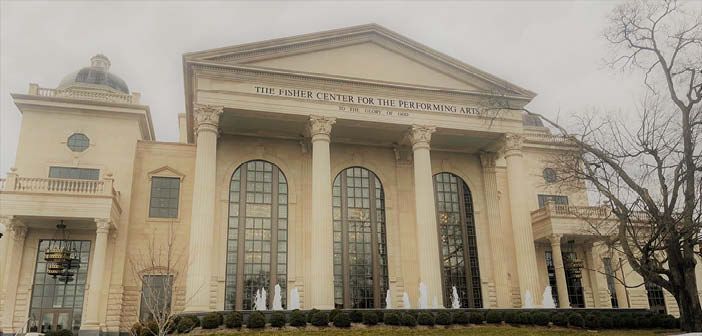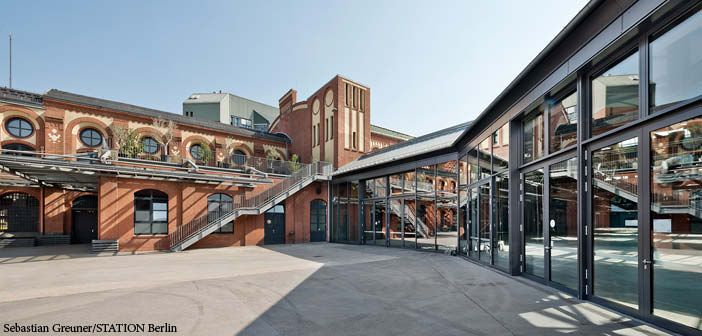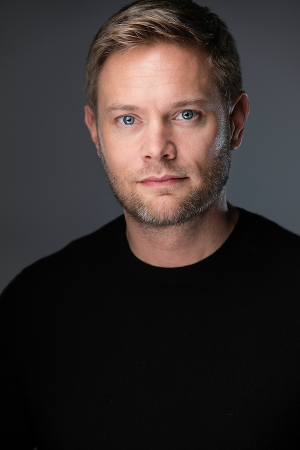 The latest venture from Guy Robinson, founder and CEO of live talent business Coalition Agency, is Car Park Party. This socially distanced drive-in is staging comedy, karaoke and cinema across the UK, in collaboration with the Comedy Store, The Massaoke Band and Horrible Histories. In this interview, Robinson explains the aims and challenges of the project, and offers his thoughts on other emerging forms of virtual entertainment.
The latest venture from Guy Robinson, founder and CEO of live talent business Coalition Agency, is Car Park Party. This socially distanced drive-in is staging comedy, karaoke and cinema across the UK, in collaboration with the Comedy Store, The Massaoke Band and Horrible Histories. In this interview, Robinson explains the aims and challenges of the project, and offers his thoughts on other emerging forms of virtual entertainment.
Can you explain the idea behind your latest venture, Car Park Party?
Coalition has been running for 25 years, and with the onset of the recent global challenges we had two options – hang up our ambitions for as long as it took for things to open again, or find another solution. We’re an entrepreneurial team, and all agreed that car parks represented a genuine opportunity for safe, socially distanced entertainment. Car Pool Karaoke, the James Corden YouTube series, was the original inspiration, and it all went from there, broadened later to incorporate theatre and comedy in the mix.
Why did you go for this approach rather than trying to apply socially distanced audience seating within a fixed venue, or using a live streaming event space?
The idea was formed on 21 April 2020; at that point there was no way anything inside would work, and I’d question whether it even would today, despite some level of relaxation from the government. We’re a live events agency, it’s our passion, and streaming just didn’t get us fired up, plus there were already experts doing it, so we didn’t consider that an opportunity for the business.
What safety measures will be in place to protect audiences, staff and performers at Car Park Party?
Cars, toilets and any queues are all 2m (6.56ft) apart, with audiences encouraged to stay within their cars as much as possible. Gallons of hand sanitiser are used across each site, toilets extensively cleaned and much more. Our audiences have been incredibly respectful, and there’s more caution amongst the general population – people are really understanding; this has been very apparent dealing with customers. With ongoing fear spreading through general media, it’s hardly surprising.
What stage equipment, setup and technologies are you using?
Our centrepiece is the Iconic 60S truck stage and screen from ADI. It’s a hell of a piece of kit and works perfectly for our needs. Most of the tech is being run by ESL from Essex. We have a broadcast van running multiple moving head cameras, and sound is pushed via an FM transmitter, with a full PA system in place as a backup.
What are the biggest challenges you face in this endeavour?
Costs versus capacity. We’ve cut no corners and have a fantastic team in place to deliver the events, but even in this market that comes at a significant cost. Furthermore, we are charging per car rather than per head; the model that we concluded was the most fair. This has proven to be right given how many competitors have fallen out the market with significantly more complicated and expensive offerings. However, we’re limited to 300 cars per show, so you’re really talking about a 300-cap venue, and most operators and promoters will be aware how tight they are to run profitably. There’s still huge caution from audiences, as I mentioned earlier, and despite so little else going on, some regional ticket sales have not moved as quickly as we hoped.
What response have you had so far? Do you think this kind of concept is here to stay?
The audiences have been lovely, and so grateful for what we’ve done. We launched the tour in Henley-on-Thames, replacing their annual Henley Festival with our drive-in shows, partnered with Comedy Store, and touring theatre show Horrible Histories. All the shows sold out, most within a couple of days, and we welcomed 2,400 vehicles over three days. We’re looking at more opportunities for later in the year, but these concepts won’t continue once confidence returns and venues can reopen profitably. It’s kept us busy, created some great new relationships, but definitely isn’t part of our future strategy. That said, bringing back the iconic Radio 1 Roadshow in a new format has been a long-time ambition of mine, so perhaps I shouldn’t speak too soon.
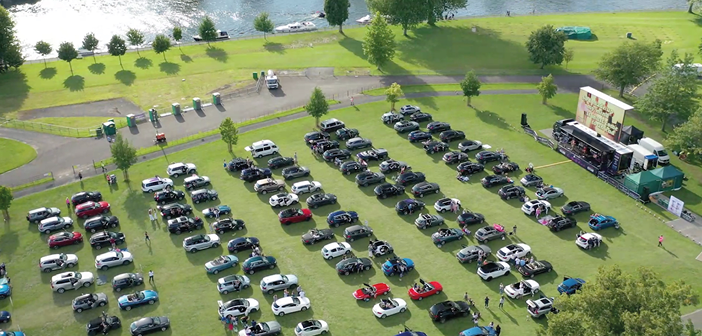
What other trends are you seeing across the industry? Have you seen many examples of live streaming studios/event spaces? What other ways has the entertainment industry found to connect with audiences virtually? How economically viable are these channels?
I think it’s great how many artists put content online so quickly to keep themselves focussed on their career and further building fanbases, and in some cases it has truly worked. That said, nothing will replace the feeling you get when you hear an audience cheer, the hairs on your neck standing up when the DJ drops an incredible new tune, or the oohs and ahhs created by a spectacular production moment, and we remain focussed on delivering those experiences.
The investment that’s gone into streaming will benefit the live industry; more hybrid income-generating models will emerge, combining full live and streaming more effectively, but record companies and social platforms need to work out their differences so anyone other than the biggest players can be included.
The rights-holder issues will I’m sure forever be the biggest stumbling blocks for most trying to push content online. I was curious to see how the industry would react to the recent challenges, for the most part it has been ambitious operators offering ‘band-aid’ type solutions, such as the drive-ins, like us, and virtual content.
There are so many people furloughed, trying to get anything effectively off the ground with reduced teams in place is not easy. I have no doubt all business owners are all hugely grateful for the generous support the government has provided to cover wages, but believe there’s unfortunately going to be a lot of redundancies yet to come, and it’ll take some time to see real growth and new developments in the industry come through.
Is there anything else you’d like to mention?
The one thing those in entertainment should be confident about is that things will eventually bounce back. It’ll be a longer road than ever before in my opinion, but humans will forever be fundamentally social creatures, and once confidence returns, the wheels of this industry will properly start turning again. Honestly, I can’t wait!
About Guy Robinson
Guy Robinson is founder and CEO of live talent business Coalition Agency, representing artists including Nick Grimshaw, Greg James and Ministry of Sound, as well as owning music and entertainment brands such as Just Can’t Get Enough 80s and the recently launched Car Park Party.


